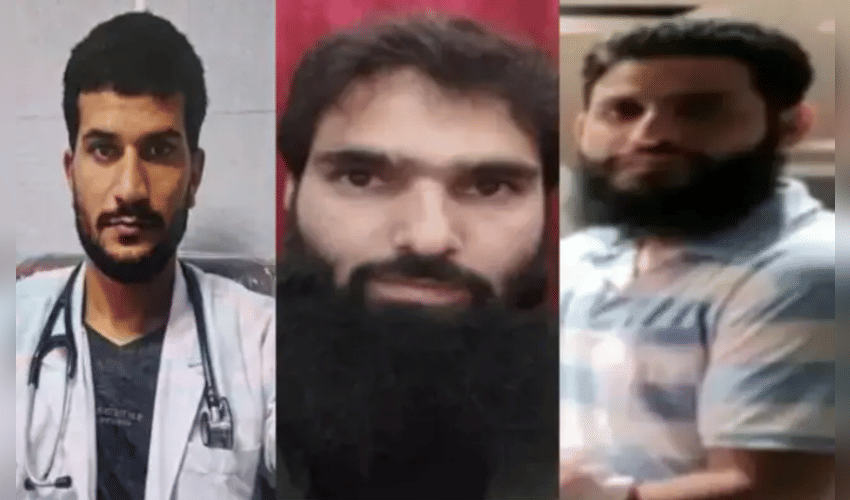News
Inside the Radicalisation of Delhi Blast Doctors: From MBBS to Terror Network

The doctors accused in the recent deadly Delhi blast were radicalised during their medical studies and internships, according to sources close to the investigation. This disturbing revelation highlights how a group of well-educated medical professionals were groomed over the past five years into part of a sophisticated terror module connected to Pakistan-based terrorist organizations.
These doctors, including Kashmiri residents and alumni of Dhaka Medical College, began showing signs of extremist indoctrination as early as their MBBS course or internships in Kashmir and other parts of India. A key figure in their radicalisation was Maulvi Irfan Ahmad Wagay, who introduced them to extremist ideologies such as “Ghazwa-e-Hind” and sowed anti-national sentiments during their hospital training stints. From there, the network expanded as members recruited more operatives, establishing a “white-collar” terror cell that operated discreetly under the guise of medical professionals.
The group’s operations were remarkably sophisticated, making use of professional relocations, internships, and medical fellowships across multiple states to create a sleeper cell infrastructure. This enabled them to move relatively undetected while quietly setting up safe houses, managing finances, and planning terror strikes—including the car bomb attack near the Red Fort that killed 15 people. Intelligence also uncovered international links, with some members traveling abroad for alleged training and receiving foreign funding through digital wallets.
Investigations further revealed the module’s digital savvy, with encrypted chats discussing funding and logistics, and AI-generated propaganda used to recruit and radicalise members online since 2019. The network’s terror ambitions were not limited to Delhi but aimed for a pan-India reach, planning up to 32 car bomb attacks across several states.
This case exposes a new dimension of radicalisation—where highly educated and seemingly respectable professionals get drawn into extremist violence, using their positions to build terror infrastructure under the radar. It underscores the urgent need for monitoring vulnerabilities within professional and academic institutions, especially those with cross-border educational links. As authorities continue to unravel this terror network, the Delhi blast serves as a grave reminder of how radical ideas can infiltrate even the most trusted sectors, making vigilance and proactive counter-radicalisation strategies critical for national security.
This account of the Delhi blast accused doctors’ radicalisation journey highlights a worrying trend of “white-collar” terror cells utilizing professional spaces, which should prompt policymakers and educational institutions to strengthen both ideological screening and counselling support during critical formative years like MBBS courses and internships.



